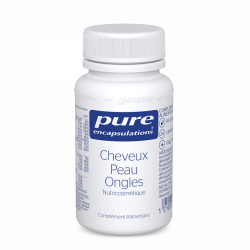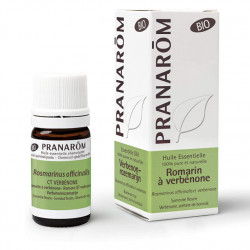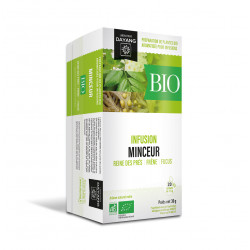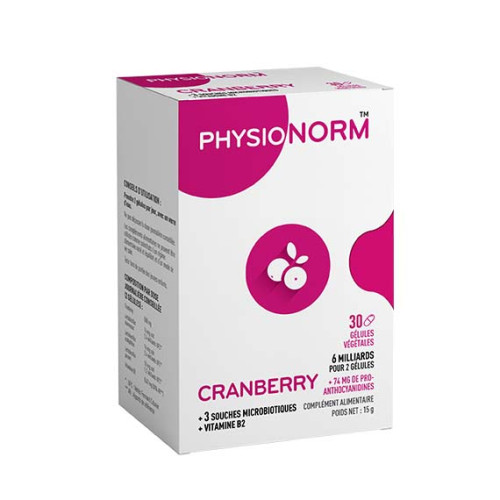
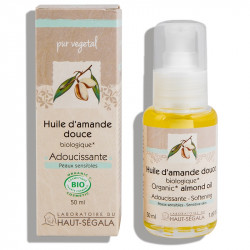


PHYSIONORM, Cranberry, Lactric ferments,
Vitamin B2
Our food supplement has the following action:
Prevention of urinary tract infections
Prevention of recurrences
Relief of urinary irritation
Specific References
Attack dose:
first 3 days: 4 capsules in 1 dose.
next 7 days: 1 capsule morning and evening.
Prevention: 1 capsule per day.
Keep out of reach of children.
Not a substitute for a varied, balanced diet.
A healthy lifestyle is important.
Do not exceed the indicated daily dose.
Cranberry, Lactobacillus rhamnosus, Lactobacillus acidophilus, Lactobacillus gasseri, Vitamin B2
Vegetable capsule, no colorants, no preservatives. NO TITANIUM DIOXIDE.
COMPOSITION PER RECOMMENDED DAILY DOSE (2 CAPSULES)
MICROBIOTIC STRAINS = 6 billion, 3 different strains
Lactobacillus rhamnosus DSMZ 32550 16 mg (2.4 billion CFU*)
Lactobacillus acidophilus DSMZ 32418 16 mg (2.4 billion CFU*)
Lactobacillus gasseri DSMZ 26355 10 mg or 1.2 billion CFU*
VITAMIN B2
Contributes to normal energy metabolism and maintenance of normal skin and mucous membranes
0.42 mg or 30% of RA** CRANBERRY (proanthocyanidins)
CRANBERRY (proanthocyanidins) 500 mg (74 mg)
*CFU: Colony Forming Units ** RA: Reference Intake
A CRANBERRY EXTRACT RICH IN PROANTHOCYANIDES (74mg), COMBINED WITH OUR PROBIOTICS, IS THE BEST NATURAL SYNERGY TO HELP PREVENT CYSTITIS.
Urinary tract infection (UTI) is a bladder infection, also known as cystitis, that affects 50% of women at some point in their lives. It manifests itself as pain or a burning sensation when urinating. Escherichia coli (E. coli) , a bacterium normally found in the digestive tract and on the skin around the rectum, is the microorganism most often responsible for ITU, in over 80% of cases.
The structure of the female anatomy predisposes women to infections, as the urethral opening is very close to the anus, which is a frequent source of bacteria. As a result, bacteria can easily migrate through the perineum, the narrow zone between the anus and vagina, to the urethra. This bacterial invasion can lead to acute cystitis.

